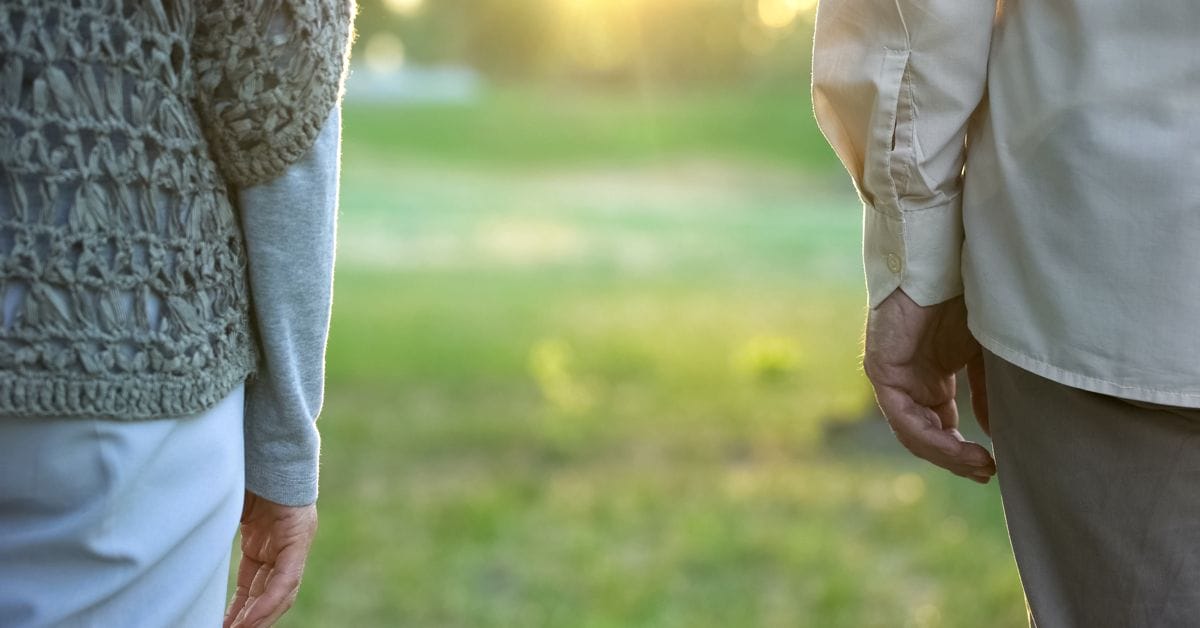It seems like attraction should be a key ingredient in marriage. After all, we all want to be attracted to our spouse, and we want our spouse to be attracted to us.
But what if that attraction isn’t there? What then?
ATTRACTION.
Attraction can fluctuate throughout the course of a marriage. It’s strong in the early days of marriage, when you’re both young, pretty, and getting to know one another. Then attraction gets tenuous a few years in, when your habits and personality traits start to wear on one another. In the middle years of marriage, attraction can easily get lost amidst the demands of building careers, raising kids, and paying bills. Attraction can surge some in the early empty-nester years, when kids leave and finances stabilize. And attraction gets redefined in your latter years, as age and physical health introduces complications and restrictions on life.
Attraction can be hard to define, but one thing’s for certain…we know when it’s not there! And if it’s not there, we often feel like all we can do is helplessly wait and hope it will eventually return.
PRINCIPLES OF ATTRACTION.
If you’re not feeling attracted to your spouse, don’t panic. Psychological studies have uncovered many principles of attraction that you can take advantage of. Here are just four of those principles and how you can apply them to your marriage. (Note: these were prompted by an article entitled, “These are the 4 Elements of Attraction, According to Psychology.” by Brooklyn Reece.)
Proximity.
This refers to the fact that you’re more likely to feel attracted to someone with whom you are in close, consistent physical proximity. It may not seem like it if you’ve been in quarantine with your spouse, but it’s easier to build attraction between people who spend a lot of time together, than between people who spend a lot of time apart. That’s why romantic relationships often occur between people who spend a lot of time working together, playing on the same team, serving in the same organizations, etc.
Yet, it’s so easy for spouses to drift apart physically. We have our own cars, our own activities, our own hobbies, and our own devices. On top of that, if you have kids who are involved in a lot of activities, you can easily find yourselves running in separate directions.
If you want to build attraction, be intentional about spending time together. Even simple things like going to the store together, sitting on the couch together, or sharing a cup of coffee together can help to gradually foster attraction.
Similarity.
I’m sure you’re familiar with the old saying, “Opposites attract.” While that may be partially true when you’re dating, the reality is that marital attraction is fueled more by your similarities than your differences. If you love the outdoors, you’re more attracted to those who love the outdoors. If you love to dance, you’re more attracted to someone who loves to dance. Introverts are more attracted to introverts and educated people are more attracted to other educated people.
If you’re thinking, “Great! We’re so different we don’t stand a chance!” you’re not alone. No couple is completely similar. Most every married couple has some glaring differences between them.
The problem is, we get used to focusing on our differences. But you and your spouse are more similar than you may think. Remember, it wasn’t just your differences that attracted you to one another. It was also your similarities.
So if similarity fosters attraction, then spend more time focusing on your similarities. It will gradually help to foster attraction in your marriage.
Physical Attractiveness.
This one is pretty self-explanatory. Though everyone has their own likes and ideas when it comes to what they find physically attractive, finding someone physically attractive tends to increase your attraction to them.
Now, before you look in the mirror and get discouraged, remember this…
Physical attraction is often the front door into relational attraction, but it is not the glue that maintains attraction over the long haul. Age and gravity will eventually overcome our attempts to hold onto physical attractiveness. But hopefully, a couple will build a relational and emotion attractiveness that will take over as physical attractiveness fades.
This does not mean you should let yourself go, or ignore your appearance, or quit trying to be physically attractive to your spouse. But you should also be working on the inner beauty that will continue to attract your spouse…long after the outer beauty fades.
Reciprocity.
Reciprocity refers to the fact that we tend to be attracted to people who are attracted to us. To put it simply…we tend to like people who like us. Not surprising, right?
If you’re thinking, “Oh no! We’re in trouble, because neither of us really likes the other right now,” don’t let that spook you. It actually means you have the ability to change things! Let me explain.
The principle of reciprocity infers that if you begin liking your spouse, it’s more probable that they will begin liking you…and visa versa. So, start liking your spouse and it will help them to start liking you.
I know…easier said than done, right?
Well, start with this… stop focusing on all the things you don’t like about your spouse and start focusing on all the things you do like about your spouse. This will make a big difference in your attitude. And, as you practice the other three principles we’ve listed, you will find this fourth principle starting to kick in.
THE BOTTOM LINE.
It’s easy to think that attraction to your spouse is something you have little control over. It’s easy to view attraction as some involuntary response that you either have or you don’t.
But if you believe that, you will be at the mercy of something that we’ve already seen can ebb and flow in a marriage.
Attraction is actually something that can be fostered and fanned into flame in a marriage, through the right actions and attitudes. So don’t wait for attraction to come to you. Go make it happen!




